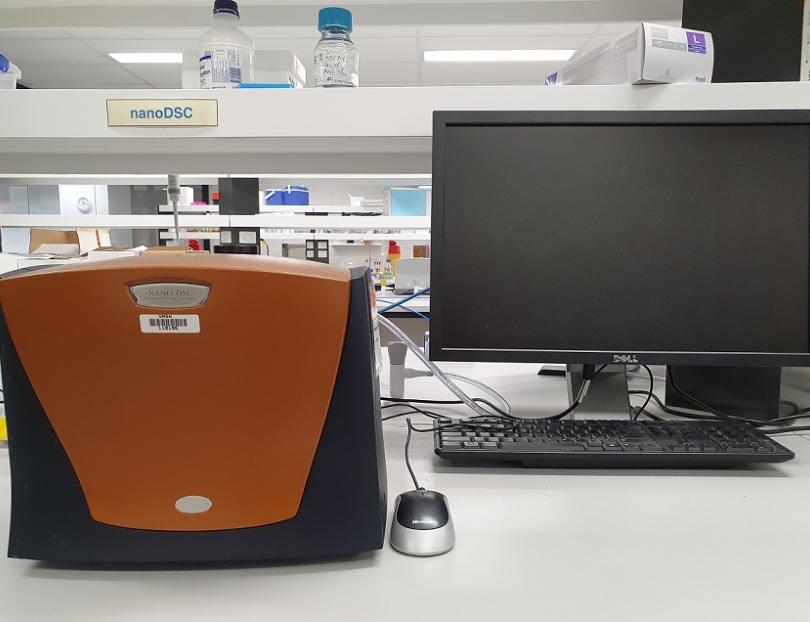
This capillary Differential Scanning Calorimeter can be used for investigating the stability of proteins, nucleic acids, lipids and other macromolecules. Differential Scanning Calorimetry (DSC) is the only method that directly measures the stability of macromolecules in solution. The information obtained provides valuable insights into the factors (e.g. hydrophobic interactions, hydrogen bonding, conformational entropy and physical environment) that stabilize these biomolecules alone or as complexes, such as protein-ligand or micellar complexes.
In addition to stability studies, DSC can also be used to study interactions of macromolecules with ligands and rank ligand affinities to protein targets, an important task in small molecule drug discovery. Therefore, DSC is an invaluable tool for the characterization and evaluation of folding and stability of biopolymers (e.g. proteins, nucleic acids, membranes) as well as for the study of binding interactions.
Recent advances in instrument design of differential scanning calorimeters result in much greater reproducibility and sensitivity, which combined with small cell volumes significantly lowers the amount of sample required (as low as 2 μg protein can be analysed). The NanoDSC has a sample cell volume of 300 μL and requires approximately 650 μL of sample for loading into the cell. The low amount of protein needed also helps to prevent protein aggregation and precipitation during unfolding and the capillary design of the NanoDSC avoids the introduction of air bubbles into the cell, which was a major problem with previous DSC models.







